
If something cast a shadow but you couldn’t see it, you’d be intrigued. If it did that on the scale of the universe, you’d be perplexed. If you then couldn’t find it despite your best efforts, you’d likely be frustrated. This is the situation that scientists looking for dark matter find themselves in. But dark matter doesn’t even cast shadows; it’s invisible to all electromagnetic radiation. And yet we have solid evidence that it exists. In fact, current calculations show that it comprises 80 per cent of all of the mass in the universe. Now a new study modelling dark matter as filtering through bubbles after the Big Bang may help point scientists in a new direction.
Although the mystery of dark matter can be traced as far back as Lord Kelvin, the modern breakthrough in research came in 1933. Fritz Zwicky was a Swiss astronomer working at the California Institute of Technology. Averaging the rotations of galaxies in the Coma Cluster, a large cluster of over a thousand galaxies, Zwicky noticed that their speeds were excessive. So much so, in fact, that the galaxies should have flown apart. There wasn’t enough visible matter to gravitationally bind each galaxy together. He concluded that there must be a ‘dunkle materie’ – or ‘dark matter’ – component to them, which he calculated to be 400 times what could be seen. Modern calculations have lowered this value.
Six years later, American doctoral student Horace Babcock showed dark matter present in the Andromeda Galaxy. Curiously, it was more concentrated in the periphery of the disc than the centre. This was the first indication that galaxies had dark matter ‘halos’. Then, in the late 1970s, American astronomers Vera Rubin and Kent Ford showed that galaxies contained between five and ten times more dark matter than luminous matter.
この記事は All About Space の Issue 112 版に掲載されています。
7 日間の Magzter GOLD 無料トライアルを開始して、何千もの厳選されたプレミアム ストーリー、9,000 以上の雑誌や新聞にアクセスしてください。
すでに購読者です ? サインイン
この記事は All About Space の Issue 112 版に掲載されています。
7 日間の Magzter GOLD 無料トライアルを開始して、何千もの厳選されたプレミアム ストーリー、9,000 以上の雑誌や新聞にアクセスしてください。
すでに購読者です? サインイン
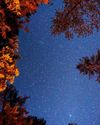
15 AUTUMN STARGAZING TARGETS
Go on a night-sky treasure hunt as the brighter evenings give way to the cooler months
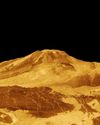
MYSTERIES OF THE UNIVERSE WHY IS VENUS SO DRY?
A new study reckons the answer lies high in the Venusian atmosphere
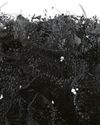
WHEN BLACK HOLES TURN WHITE
Can bouncing black holes help physicists find the ultimate theory of everything?
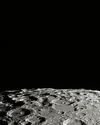
THE MOON'S THIN ATMOSPHERE IS MADE BY CONSTANT METEORITE BOMBARDMENT
While the solar wind also contributes to the atmosphere, meteorites are the main culprit
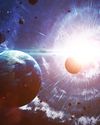
INTERSTELLAR TRAVEL AND HOW TO BECOME A SPACE TOURIST
Having explored much of the Solar System, attention is now turning to the stars beyond
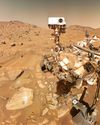
NASA'S PERSEVERANCE ROVER FINDS POSSIBLE SIGNS OF ANCIENT RED PLANET LIFE
Further analysis is needed, but a rock contains potential evidence that life once existed on Mars in the distant past
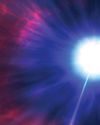
A NASA TELESCOPE MAY HAVE FOUND ANTIMATTER ANNIHILATING IN POSSIBLY THE BIGGEST EXPLOSION SINCE THE BIG BANG
The massive explosion was captured in 2022

Jameel Janjua "This is how we get to Mach 3”
Jameel Janjua made it to the bitter end in a Canadian government astronaut selection in 2009, but wasn't chosen. He found a different path to space through Virgin Galactic

BOEING NEEDS TO IMPROVE QUALITY CONTROL ON THE SLS MOON ROCKET
The NASA Inspector General's report finds serious quality-control issues affecting the upgraded version and expects cost overruns and delays

DARK ENERGY
THE MOST DOMINANT FORCE IN THE UNIVERSE IS ALSO ITS MOST MYSTERIOUS AND MOST UNANTICIPATED